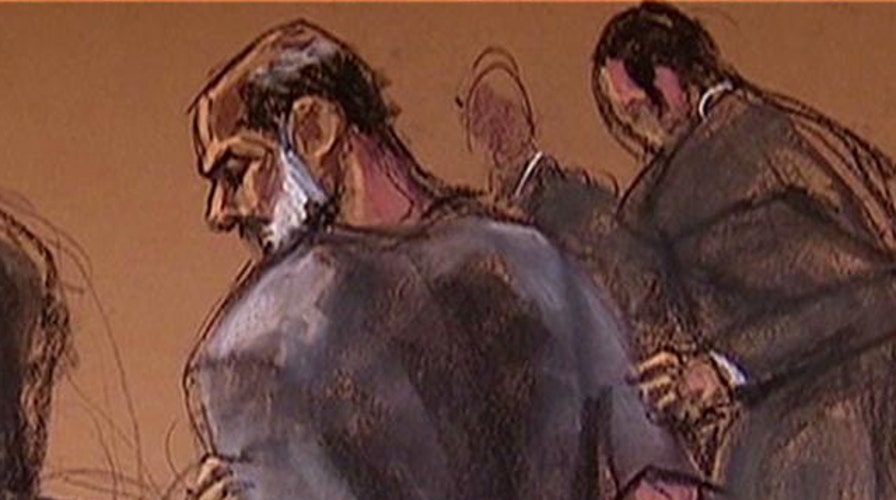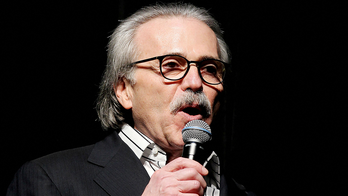Bin Laden kin gets 'sneaky' civilian court treatment?
Lawmakers outraged over secret transfer of Bin Laden's son-in-law to US soil and wonder why he's not being tried at Gitmo
A top Al Qaeda spokesman, who is the son-in-law of Usama bin Laden, pleaded not guilty Friday in federal court to charges of conspiracy to kill Americans, touching off what could be lengthy legal proceedings as Republicans complained that such terror suspects don't belong in the civilian judicial system.
Sulaiman Abu Ghaith was hit with the charges in an indictment unsealed by the Justice Department late Thursday. The terror suspect's capture and prosecution in federal court -- all of which was first revealed to the public Thursday -- caught lawmakers by surprise.
Republican Sens. Lindsey Graham and Kelly Ayotte, said Thursday the Obama administration's decision to bring Abu Ghaith to court in New York City is wrong, "sneaky" and against the will of Congress. While foes of using Guantanamo to hold suspects say detainees there are afforded fewer legal rights, supporters say they can yield more information while held in the military facility.
Graham says Abu Ghaith is clearly an enemy combatant and should have been sent straight to the Guantanamo Bay detainee facility for extended questioning.
"The Obama administration’s lack of a war-time detention policy for foreign members of al Qaeda, as well as its refusal to detain and interrogate these individuals at Guantanamo, makes our nation less safe," Graham and Ayotte said in a joint written statement. “We are at war with Al Qaeda and its affiliated groups, and America’s detention policy must reflect that reality."
On Friday, Senate Republican Leader Mitch McConnell also questioned whether the U.S. was losing valuable intelligence by going through the civilian court system.
"From public reports it is clear that Abu Ghaith possesses valuable knowledge of al Qaeda's activities within Iran. Abu Ghaith has sworn to kill Americans, and he likely possesses information that could prevent harm to America and its allies. He is an enemy combatant and should be held in military custody," he said.
But the White House argues that the civilian courts are a more effective avenue for justice.
"Article 3 courts have shown that they are, in many ways, a more efficient way for us to deliver justice to those who seek to harm the United States of America and that is the consensus view of the president's national security team and of agencies all across the federal government -- that this is the best way to handle bringing Abu Ghaith to justice," Deputy Press Secretary Josh Earnest said Friday.
Fox News has learned that the suspect was arrested Feb. 28 overseas and arrived March 1. His next court appearance is set for April 8. He has at least three court-appointed lawyers; he does not have the resources to pay for them.
The case reflects the Obama administration priority of prosecuting terror suspects in U.S. federal courts instead of holding them at Guantanamo Bay, which the administration has so far been unable to close.
The capture of Abu Ghaith drew praise from Republican Rep. Peter King of New York, the former chairman of the House Homeland Security Committee, who called it a "very significant victory" in U.S. efforts against Al Qaeda.
The Justice Department touted the capture of Abu Ghaith as significant.
"It has been 13 years since Abu Ghaith allegedly worked alongside Usama Bin Laden in his campaign of terror, and 13 years since he allegedly took to the public airwaves, exhorting others to embrace Al Qaeda's cause and warning of more terrorist attacks like the mass murder of 9/11," U.S. Attorney Bharara said in a news release announcing Abu Ghaith's arrest. "The memory of those attacks is indelibly etched on the American psyche, and today's action is the latest example of our commitment to capturing and punishing enemies of the United States, no matter how long it takes."
Attorney General Eric Holder added, "No amount of distance or time will weaken our resolve to bring America's enemies to justice."
Abu Ghaith became an international name in late 2001 when he appeared on pan-Arab satellite television urging Muslims everywhere to fight the United States and warning of more attacks similar to those of Sept. 11.
In one video, he was sitting with bin Laden in front of a rock face in Afghanistan. A teacher and mosque preacher in Kuwait, he was stripped of his Kuwaiti citizenship after 9/11.
He is identified as a major Al Qaeda core official by the New America Foundation think tank in Washington. King said Abu Ghaith was involved in the planning in the 9/11 attacks against the World Trade Center and Pentagon.
"Definitely, one by one, we are getting the top echelons of Al Qaeda," King said. "I give the (Obama) administration credit for this: It's steady and it's unrelenting and it's very successful."
Attorney Michael Rosensaft, who was a prosecutor in the U.S. Attorney's office in Manhattan until last fall and is now in private practice, predicted the trial will last months, if not years, and that some of the evidence against Abu Ghaith will be a challenge for prosecutors to bring to court if it is classified.
Abu Ghaith's trial will make one of the few prosecutions of senior Al Qaeda leaders on U.S. soil. Charging foreign terror suspects in American federal courts was a top pledge by President Obama shortly after he took office in 2009 -- aimed, in part, to close the detention center at Guantanamo Bay, Cuba.
"The propaganda statements in which Abu Ghaith and his late father-in-law, Usama bin Laden, praised the terrorist attacks of Sept. 11, 2001 are alone enough to merit the most serious punishment," King said
The Obama administration's attempts to move many of the detainees held at Guantanamo into facilities in the United States to stand trial domestically were halted during Obama's first term after Congress passed a measure with bipartisan majorities opposing such transfers.
Fox News' Mike Levine and The Associated Press contributed to this report.





